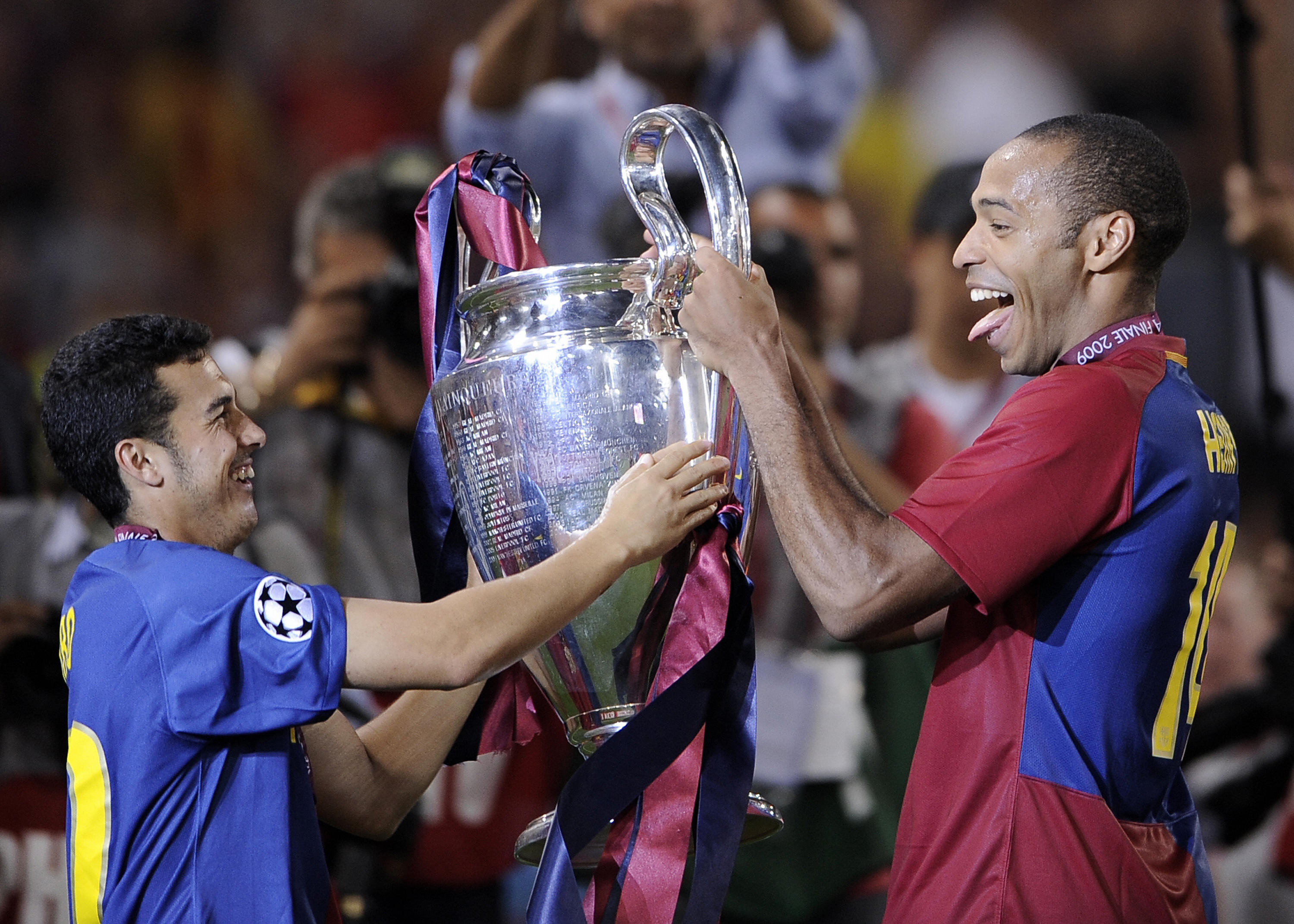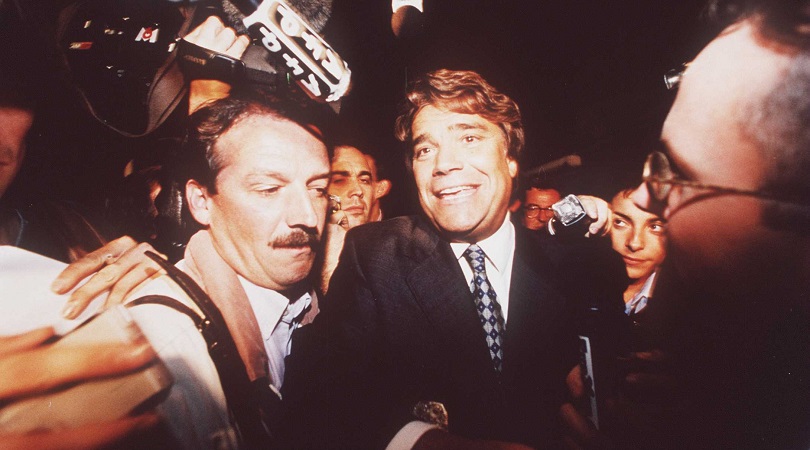
Match-fixing scandals
With such vast sums of money swirling around the game, it’s no surprise that football has fallen victim to numerous match-fixing incidents down the years.
Some episodes are more high-profile than others, and in this slideshow we pick out the nine ugliest match-fixing scandals in the history of the game.
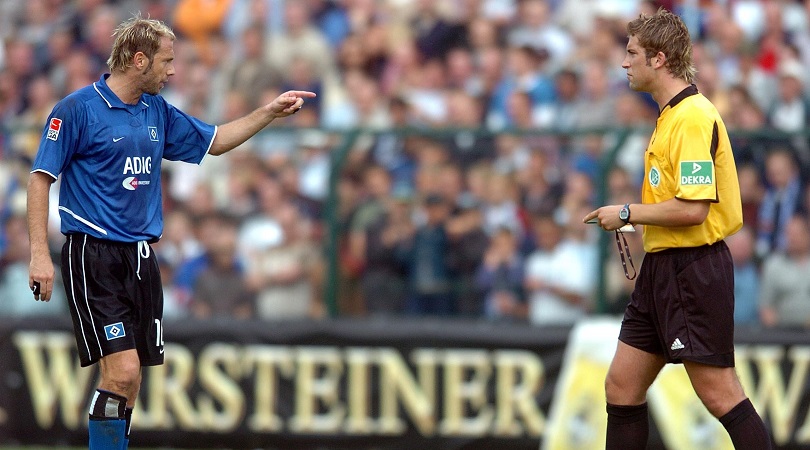
9. German ref makes some money (2005)
Former German referee Robert Hoyzer was convicted and sentenced to more than two years in jail for his part in accepting money to fix matches for a Croatian gambling-addict bar owner, Ante Sapina.
Hoyzer was found guilty of fixing multiple matches in the German second and third tiers, as well as high-profile cup matches involving Bundesliga clubs. He was reportedly paid a sum of €67,000 and received a television set for helping to arrange the matches, which involved the awarding of controversial penalties and red cards across 23 separate matches.
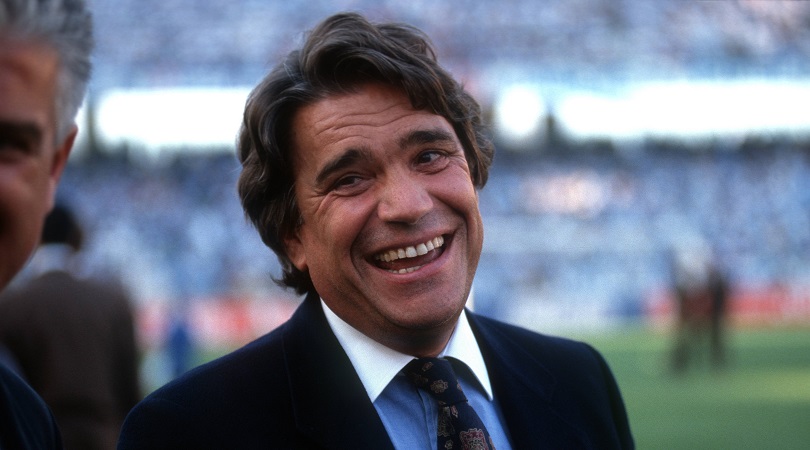
8. Marseille get stripped (1993)
Marseille were stripped of the Ligue 1 title and banned from defending their Champions League trophy after attempts were made to bribe their opponents to ‘go easy’ on them.
With OM set to play their Champions League final against Milan shortly after they met Valenciennes in a clash which would also secure the domestic title, midfielder Jean-Jacques Eydelie approached three opponents with the promise of cash to take it ‘easy’ on his team, and allow them to avoid injury.
When one member of the trio refused and informed the French authorities, the whole scheme was exposed and resulted in the club’s president Bernard Tapie (pictured) receiving a two-year prison term.
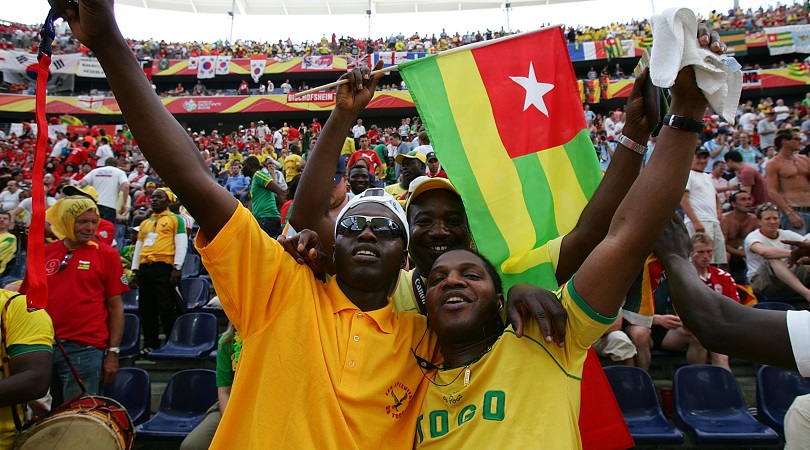
7. Fake Togo take the mick (2010)
The use of ‘doctored’ teams has long been a ploy of fixers at less noticeable matches, and Bahrain’s clash with Togo in 2010 was a classic example. The Gulf nation stunned the Togolese side 3-0, with the team’s coach, Austrian Josef Hickersberger, expressing his surprise at their opponent’s lack of fitness.
But when word of the result filtered back to the African nation, the Togo FA was aghast at the outcome and said they knew nothing of the team or any of the players. It emerged that a disgruntled former coach, Tchanile Bana, had assembled the group of ‘fake’ players who received a payment of almost US$60,000 (£40,000) from an international syndicate.
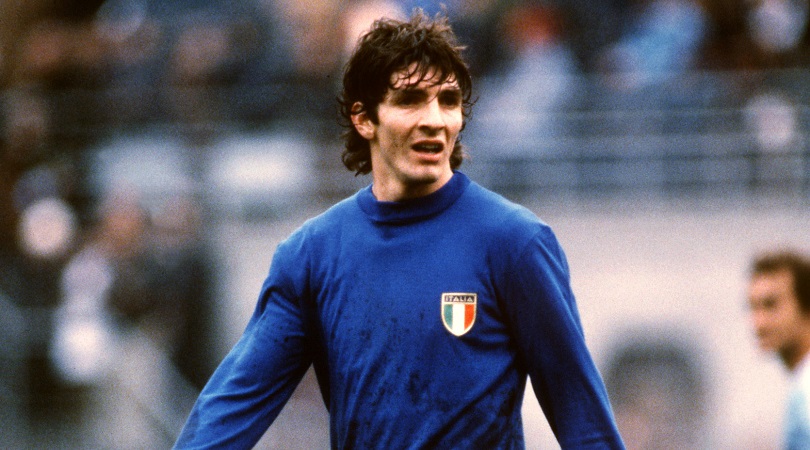
6. Italian shopkeepers mastermind Totonero (1980)
Named after the term for illegal gambling, the Totonero scandal of 1980 resulted in an almost unprecedented series of bans after Italian officials uncovered a widespread attempt to fix matches masterminded by 32-year-old greengrocer Massimo Cruciano and 45-year-old restaurateur Alvaro Trinca.
The latter’s business was often frequented by Lazio players, and that’s where things were initially hatched in a widespread plot that eventually resulted in 20 players and two managers receiving a collection of bans that totalled more than 50 years.
The most prominent among that group was the star of the World Cup two years later, Paolo Rossi (pictured), with leading clubs Milan and Lazio also relegated to Serie B.
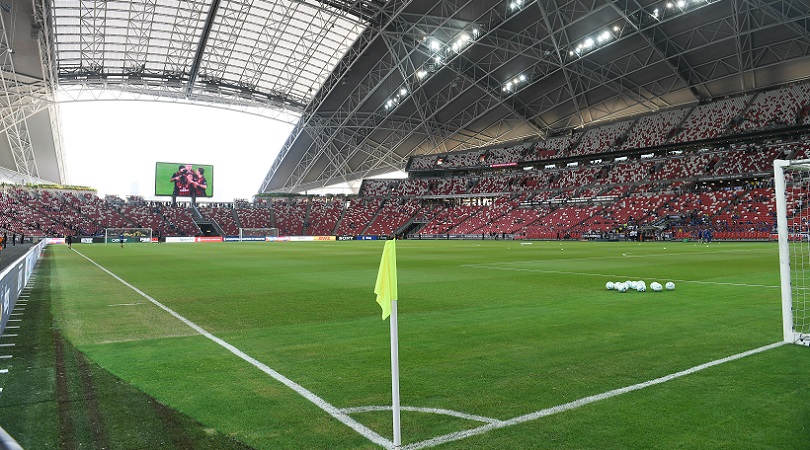
5. SEA Games shattered (2015)
When Singaporean Rajendran R Kurusamny was jailed for masterminding a conspiracy to fix matches at the 2015 SEA Games, the official in charge of handing him an almost four-year prison sentence noted it was the highest-ever term handed to a fixer on a single charge.
During the trial it was argued that Rajendran was regarded as Singapore’s most prolific match-fixer. The 55-year-old was finally brought down as details emerged of a plot to arrange the outcome of a match between Timor-Leste and Malaysia which involved a S$15,000 payment to a Timorese official.
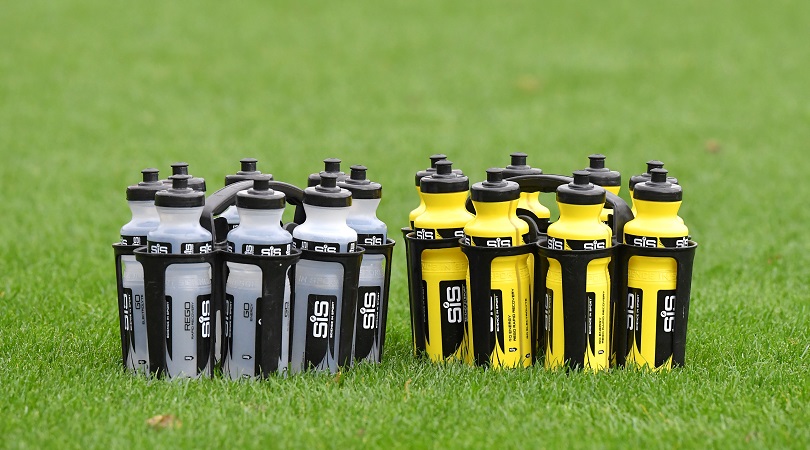
4. When water bottles get spiky (2010)
When Cremonense met Paganese in the Italian third tier in 2010, things started to go wrong early as the players began to feel lethargic, with one almost crashing his car on the way home later as he struggled to stay awake.
It later emerged that goalkeeper Marco Paolini had spiked his own team’s water bottles with tranquilisers in order to fix the match and pay off his own gambling debts. Paolini was banned from football for five years, which Italian investigators believe was linked to one of the ‘godfathers’ of fixing, disgraced Singaporean Dan Tan.

3. The oldest profession (2013)
Rather than money, this case involved women: Lebanese referee Ali Sabbagh was reportedly offered his choice of ‘Colombian or Asian’ prostitutes for free when he arrived in Singapore to officiate an AFC Cup match between Tampines and East Bengal (including the wonderfully named Climax Lawrence – pictured above but not in any way implicated in this scandal).
But just before the match he was arrested by the Corrupt Practices Bureau and later sentenced to six months in prison, as well as being banned for life by FIFA.
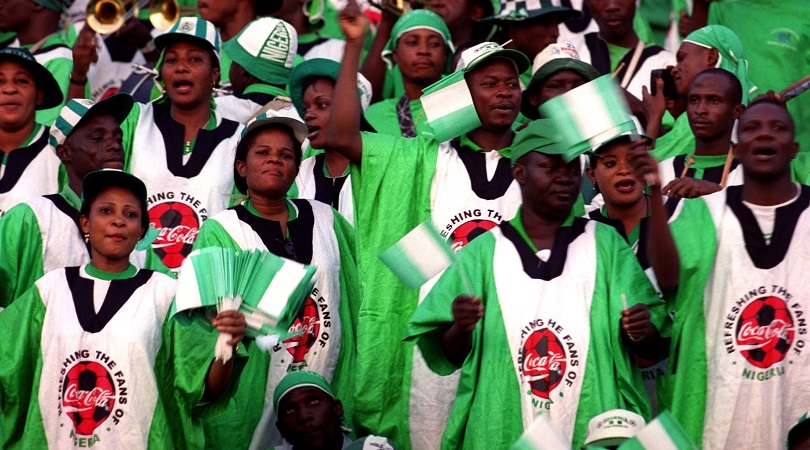
2. Entirely coincidental goal gluts, agg. 146-0 (2013)
With a promotion place to Nigeria's professional ranks on the line, the equation was simple for the two clubs who entered the final matchday of 2013 in contention: better the other’s result.
Plateau United Feeders feasted on an astonishing 72 second-half goals to emerge 79-0 winners against Akurba, while fellow promotion hopefuls Police Machine (no, really) managed only a 67-0 triumph over Babayaro FC. One player scored 11 goals, another chalked up three own goals, and at one point there were four net-ripplers scored within a minute.
The Feeders won promotion, but it didn’t take long for the authorities to act: the Nigerian FA banned all four clubs for a decade in what they termed a “shameful” incident.
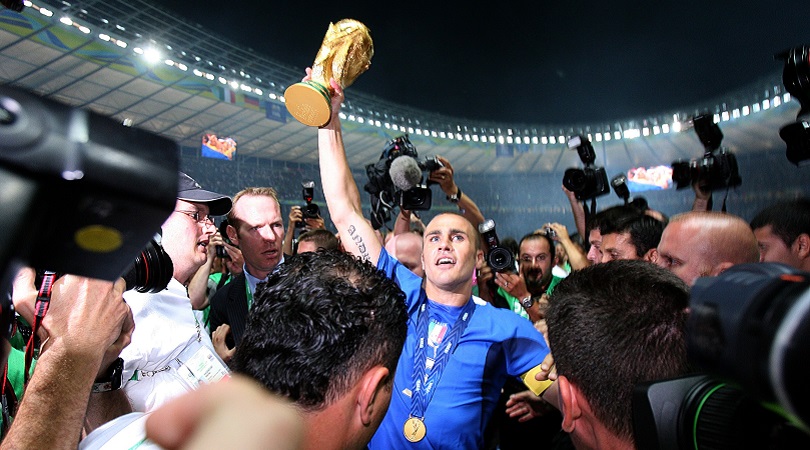
1. Italy hits shameful high with Calciopoli (2006)
When Italian police uncovered evidence that teams including Juventus, Lazio, Milan, Fiorentina and Reggina had all been involved in fixing matches with favourable referees, the repercussions were severe.
Giants Juventus, Serie A champions in 2005-06, were stripped of their title and relegated to Serie B; Milan kicked off the next campaign with a 30-point deficit; Fiorentina and Lazio escaped the initial judgement of relegation and were instead booted out of Europe for a year; Reggina president Pasquale Foti was fined £20,000 and banned from football for two-and-a-half years.
Despite the national team managing to win the World Cup in 2006, it took Italian football quite some time to get over Calciopoli.
Greg Lea is a freelance football journalist who's filled in wherever FourFourTwo needs him since 2014. He became a Crystal Palace fan after watching a 1-0 loss to Port Vale in 1998, and once got on the scoresheet in a primary school game against Wilfried Zaha's Whitehorse Manor (an own goal in an 8-0 defeat).
 Join The Club
Join The Club











